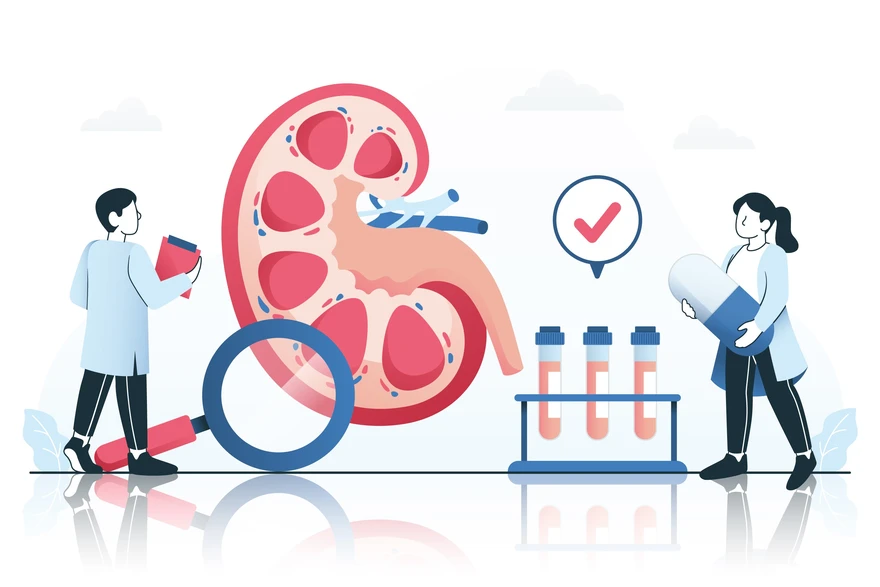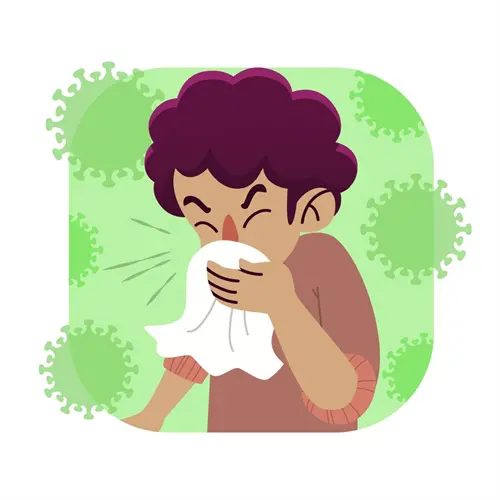Preventive Healthcare
Pyelonephritis: Everything You Need to Know About The Kidney Infection
2495 Views
0

Introduction
What Is A Kidney Infection (Pyelonephritis)?
Pyelonephritis is a urinary tract infection (UTI) that can spread from the bladder to the kidneys. Bacteria are one of the most common causes of this type of kidney infection. Kidney infections are often more serious than urinary tract infections and can affect one or both kidneys.
What Are The Symptoms Of A Kidney Infection?
You may notice kidney infection symptoms within about two days of being infected.
These symptoms include:
- Cloudy urine
- Painful or burning sensation when urinating
- Fever higher than 102°F or 38°C
- Pain in the back, groin, side, or abdomen
- Urgent or frequent urinating
- Blood or pus in the urine
- Urine that smells fishy
Other kidney infection symptoms include:
- nausea
- fatigue
- generally feeling sick or aching
- chills/shaking
- moist skin
- mental confusion
- vomiting
What Causes Kidney Infections?
Bacterial infection is one of the most common causes of kidney infection. In rare cases, a viral infection can also cause kidney infection, but that does not infect healthy people.
Bacteria included in the causes of kidney infection are:
- Proteus mirabilis
- E.coli
- Enterobacter
- Staphylococcus
How Do You Get A Kidney Infection?
The main function of the kidneys is to to get rid of the urine created in the body. Urine travels through the ureters to the bladder before being expelled through another tube called the urethra. The urine usually cleans out any bacteria or germs with it.
In some cases, these bacteria travels upwards into your body and can infect some of the parts of the your urinary tract, including the urethra, ureters, and bladder (cystitis). When this bacteria reaches the kidneys, it can cause a kidney infection called pyelonephritis.
What Are The Risk Factors For Kidney Infection?
Risk factors of kidney infections include:
- Blockages: If you have a condition that doesn't allow you to pass urine out of your urinary tract, bacteria can multiply and travel to your kidneys. If you have an enlarged prostate, kidney stones, or a prolapsed uterus, you may be at risk of kidney infection. Excessive pressure on your bladder during pregnancy can also put you at risk of kidney infection.
- Vesicoureteral Reflux: In this condition, your urine flows in the wrong direction and can back up from your bladder.
- Diseases: If you have a medical condition such as HIV or diabetes, or are taking immunosuppressant medications, you may also be at risk of developing a kidney infections.
- Women: Women are at higher risk of developing UTIs and, ultimately, kidney infections because they have a shorter urethra which makes it easier for the bacteria to travel up the urinary tract to the bladder and kidneys.
What Are The Complications Of A Kidney Infection?
Kidney infections can lead to life-threatening complications if they left untreated. It can seriously affect people with a weak immune system or other underlying health conditions.
Conditions that can arise due to complications of kidney infections include:
- Renal papillary necrosis: This is a condition that damage your kidneys.
- Emphysematous: This is when bacteria starts to destroy parts of your kidneys, which can then create gas. This condition is mainly seen in people with diabetes.
How Is A Kidney Infection Diagnosed?
A urine test is the first and most effective way to diagnose a kidney infection, and your doctor may prescribe a urine test if they suspects that you have kidney infection symptoms. A urine test helps to check the urine for bacteria, blood, and pus.
Imaging tests like radioactive imaging or ultrasound may also be necessary if you do not respond to kidney infection treatment within 72 hours.
How Is A Kidney Infection Treated?
Kidney infection treatment may include a course of antibiotics. If you do not feel better even after a 14-day course of medication, you may need to take them for longer period or be treated in a hospital, based on your level of sickness.
What Medications Treat Kidney Infections?
Your healthcare provider may prescribe one or more antibiotics as an effective kidney infection treatment.
This includes:
- Trimethoprim-sulfamethoxazole (TMP-SMX)
- Amoxicillin or augmentin
- Ceftriaxone or cephalexin
- Ciprofloxacin or levofloxacin
Can Kidney Infections Be Prevented?
Kidney infection always start with a bladder infection, so if you want to prevent kidney disease, you should start by preventing lower urinary tract infections first.
Here are some steps you can take to avoid infection anywhere in the urinary tract:
- Drink plenty of water - Talk to your doctor regarding how much water and fluids they recommend for you to consume each day.
- Empty your bladder completely - Do not hold in your urine as this may encourage bacterial growth. Make sure you empty your bladder every day.
- Urinating before and after having sex - Urination before and after having sex can help you flush out any unwanted bacteria present in the urinary tract.
- Practice good hygiene - Bath daily and change underwear if it gets wet or sweaty. After defecation, wipe the concerned area from front to back. This helps in pushing bacteria in the stool away from body openings.
What Can I Expect If I Have A Kidney Infection?
With the proper kidney infection treatment, the outlook for this condition is favourable.
However, you may need to visit your doctor immediately if:
- Your kidney infection is not showing positive results even after treatment
- You have a weakened immune system due to an underlying medical condition
- You are very sick or the infection has spread to other parts of your body
How Long Does A Kidney Infection Last?
If you are undergoing the proper treatment, you may need just a few days of kidney infection recovery time to return to your routine; however, you still need to complete the course of antibiotics. Harder to treat kidney infections can take up to several weeks for a full recovery.
Can A Kidney Infection Go Away By Itself?
No, unlike lower UTIs, which go away on their own, kidney infections do not. On the other hand, if left untreated, kidney infections can also turn into a chronic, life-threatening disease. It is best to visit your doctor as soon as you notice the first kidney infection symptoms.
What Can I Do At Home For A Kidney Infection?
While you should never try to treat kidney infections at home, simple steps like drinking water and avoiding caffeine and alcohol can help your kidneys fight the disease more effectively. Always follow your doctor's recommendations and take the prescribed medication on time.
Conclusion
A kidney infection is not a very serious condition, but it takes time to treat. Maintaining good hygiene and making sure your bladder is empty can also help you to reduce risk of kidney disease. Regular health examination and urine examination can help you determine potential health, which may be at risk of kidney infection. Metropolis Labs is one of the leading diagnostic centres in India. Their convenient at-home services help you get the tests you need from the comfort of your home without disrupting your daily routine too much. Contact us today for your appointment.























 WhatsApp
WhatsApp